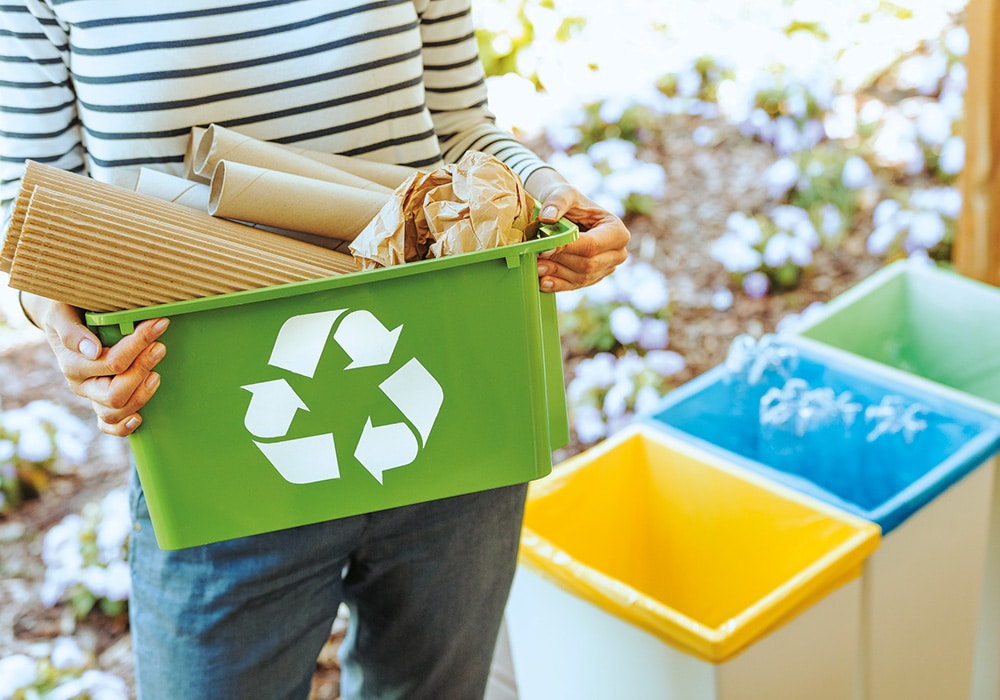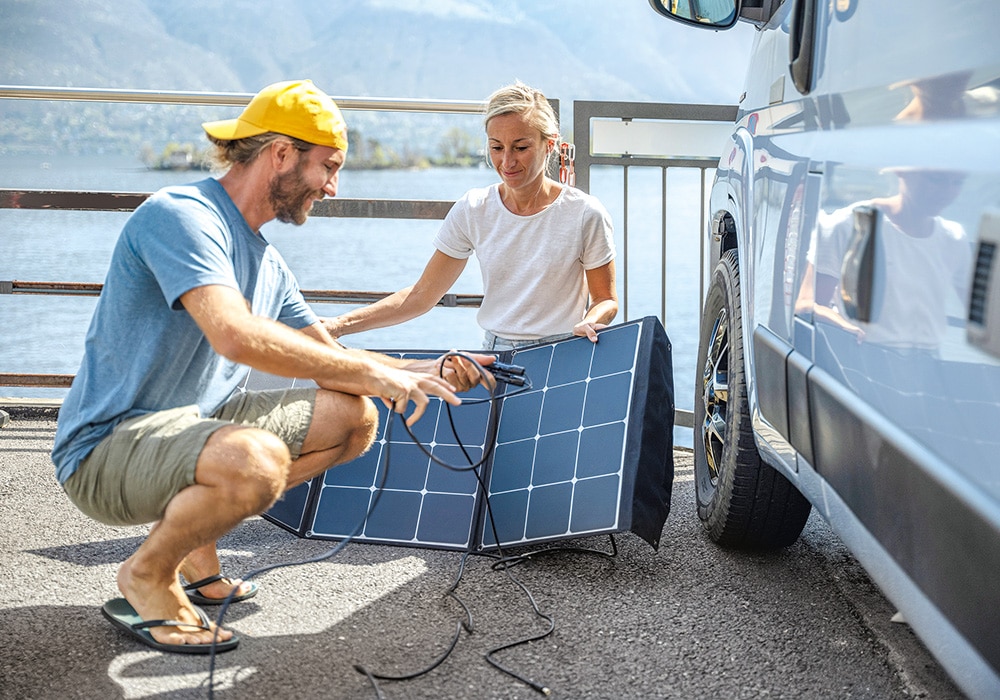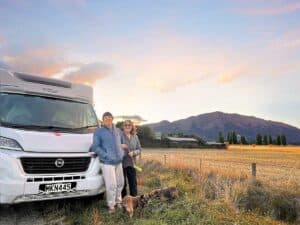Most of us are keen to reduce our footprint on the road. Claire Smith finds some handy ways you can care for the environment without impacting on your enjoyment – and you’ll save a few dollars too!
Motorhome travelling isn’t always the most enviro-friendly holiday option. But when they’re parked up, RVs can – and often are – exemplary examples of sustainability and conservation. RVs use considerably less water and power than the average household, which makes them an eco-friendlier option than most other accommodations. If you’re keen to live life a little greener, read on.
Use your fuel efficiently
As tempting as it might be to pack an extra box or two of equipment, clothes, toys, and other goodies for your weekend getaway, bear in mind that the heavier your RV is, the more fuel it will consume. And with diesel and petrol prices rising rapidly, that’s also an extra cost you could do without! You can also help improve fuel efficiency by keeping your tyres at optimal pressure and staying up to date with your RV’s maintenance and servicing schedule.
Get set up with solar power
One of the most cost-effective ways you can reduce your environmental impact is to get yourself hooked up to the sun’s free power supply. Reducing the need to rely on mains power, having solar power onboard also means you can travel off-grid and freedom camp for longer.
Solar power comes in a few different forms, from small portable power banks that can be used just for charging up devices, right through to the ‘works’ that will power up everything in your motorhome. For this, you’ll need solar panels, a charge controller, and a storage battery (or two). The initial outlay can cost a few hundred to a few thousand dollars, depending on how long you want to go off-grid, and what sort of appliances you have on board, so it’s a good idea to talk through your needs with an expert to decide on the best approach.
Choose energy efficient appliances
Whether you choose to use solar or need to stay connected to the mains, using energy efficient lighting and appliances makes a big difference to how much power you’ll use. Many appliances now include an energy rating so you can see how much power they use.
LED lights, which most new motorhomes now have as standard, use considerably less power than traditional lighting. There are many different types of LED lights, from spotlights and downlights to dimmable bulbs and reading lights.

Reduce waste and recycle
In a world where disposable masks, individually wrapped foods, and protective covers are everywhere, it can be difficult to keep waste to a minimum. Have a few permanent masks, reusable bags and beeswax wraps on board to reduce the plastic; invest in a reusable coffee cup for takeaways.
Recycling is one of the simplest steps we can all take to help lighten our environmental footprint. Keep a separate bucket or bin for storing waste that can be recycled and disposed of as you travel. Most campsites have recycling bins that allow you to separate your rubbish. There are also several camping apps that will help you find what you need.
To help reduce the amount of recycling you’ll need to dispose of, cut back on disposable items such as plastic wrapping and bottles. Most supermarkets and other food stores are now on board with customers bringing their own containers for buying meat, fish, and deli items. Imagine how much plastic we could avoid adding to the environment if we all did that!
Eco-friendly winter warmers
Before you crank up the diesel heater as the temperatures drop, there are a few simple steps you can take to ensure your RV is as cosy as possible. First, find out whether your motorhome or caravan’s insulation is up to the task. If not, it may be worth the investment to get this done professionally. Double-glazed windows also help and could be the difference between needing a heater or getting by with an extra layer. It’s also a good idea to check your RV for gaps around the windows, doors, and vents where warm air might be escaping. And of course, the good old hot water bottle is a must-have for your winter travels. Fill it up with boiling water when you’re ready to settle in for the night and you’ll be cosy till morning.
Support local communities
Motorhomers do a fantastic job of supporting New Zealand’s small townships and communities. By making a purchase at a local café or craft store when you stop by, you’re directly helping the small businesses who have been struggling to survive without the usual tourist numbers over
the past few years.
Buying produce from local roadside stalls and farmers markets is also a winning step. You’ll be paying money directly to the grower – which reduces the carbon footprint involved in transportation – plus you get to enjoy fresh, in-season produce at a reasonable price.
You can support small communities further by volunteering with a local enviro-friendly organisation. It’s a great way to meet like-minded travellers while you make a real difference to the communities on your travel path. If you’re unsure where to start, check out conservationvolunteers.co.nz. You can search for the type of project that suits you within the region you’re travelling in. The Department of Conservation is another great cause always in need of volunteers. Visit doc.govt.nz/get-involved to find out more.
Follow the Tiaki Promise
The Tiaki Promise is an initiative designed to encourage travellers of New Zealand to care for its people, place, and culture for now and for future generations.
Its simple guidelines are:
- Care for land, sea and nature, treading lightly and leaving no trace.
- Travel safely, showing care and consideration for all.
- Respect the culture and local communities, travelling with an open heart and mind.
A good way to help honour the promise is to follow the seven ‘leave no trace’ principles, which include:
- Plan ahead and prepare
- Travel and camp on durable surfaces
- Dispose of waste properly
- Leave what you find
- Minimise the effects of fire
- Respect wildlife and farm animals
- Be considerate of others
Find out more at tiakinewzealand.com and leavenotrace.org.nz
There are several websites which help with ideas on how to travel sustainably. Check out the NZMCA website for more information on the 550 New Zealand businesses that are interested in sustainable development practices.
Looking for motorhomes or caravans for sale in NZ? Browse our latest listings here.






